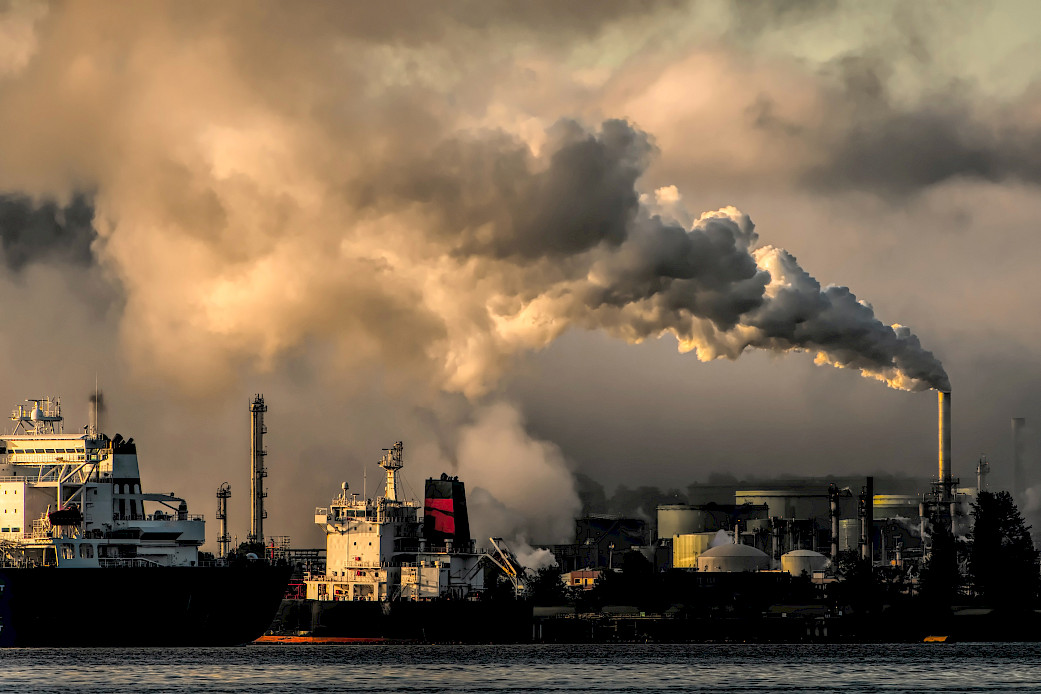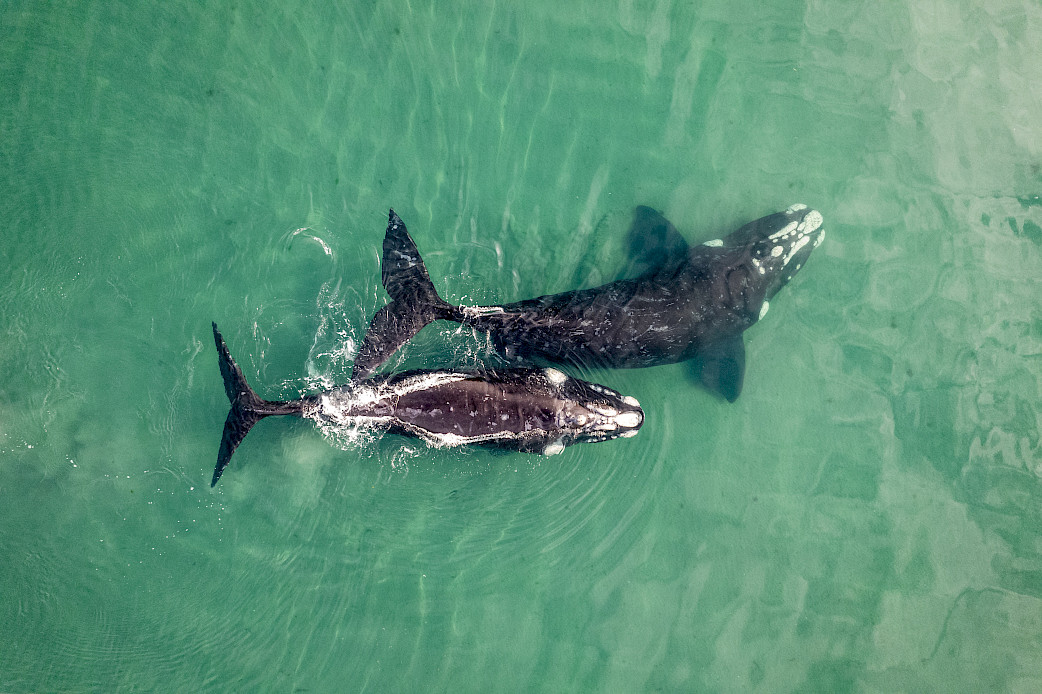Technology: Our Planet's Savior or its Demise?
Mary Efird · 2 commentsIn ecological sociology, there are two predominant theories that attempt to explain the relationship between technological advancement and environmental degradation: ecological modernization and the treadmill of production. Each theory has been immensely influential within the field of ecological sociology, yet the two are diametrically opposed. Ecological modernization theory posits that technological progress will lead to the creation of environmentally friendly technology that is capable of increasing production without simultaneously harming the environment. The treadmill of production takes a completely opposite stance, theorizing that technological progress is linked to increased production, which requires natural resources and inevitably leads to increasing environmental harm.
So which is it? Will technological advancement save the planet or destroy it? Is increased production inextricably linked to environmental degradation or can we decouple this destructive relationship through better technology? These are the questions we asked ourselves this week in our Environment and Society class, under the guidance of guest speaker Matt Houser. We found that the answers to these questions may not be as straightforward as the two theories might suggest.
Jorgenson and Clark (2012) attempt to test the validity of ecological modernization theory vs the treadmill of production theory through empirical means.1 Using GDP data as a proxy for economic productivity and carbon emission data as a proxy for environmental damage, the authors analyze the links between increased productivity and environmental degradation in various developed and developing countries across the world. Their findings showed that more developed countries like the United States produced less carbon emissions than developing nations, suggesting a decoupling effect between production and environmental damage, which would seem to support ecological modernization theory; however, the authors acknowledge that these patterns might be complicated by the fact that many developed countries have moved their means of production into developing nations, where environmental laws are often less stringent. In other words, production and environmental damage are being reshuffled, creating the illusion that developed nations are producing more while harming the environment less.

Jorgenson and Clark highlight the important issue that systems of production and subsequently the environmental harm that may arise from them are becoming increasingly complex in our transnational economy. Ecological modernization theory outlines a simple process in which production and environmental damage initially increase concurrently, eventually leading to “ecological rationality” in which people become aware that negative impacts on the environment can lead to negative impacts on human society; after “ecological rationality” is achieved, ecological modernization theory suggests that people will then use improving technology to minimize negative environmental impacts, effectively decoupling increased production and environmental damage.
But what happens when a country can essentially relocate the negative consequences of their actions? Can ecological rationality be achieved when a country can enjoy the fruits of their production while the negative impacts are felt elsewhere? I would argue no, and I think that we are seeing the consequences of this phenomenon in our society right now. It is well known that the developing world suffers disproportionately from the impacts of climate change and environmental degradation. This is illustrated by the catastrophic flooding that occurred in Pakistan just last month and the floods currently happening in Nigeria. 2, 3 Because these catastrophic climate events occur more frequently in developing nations, developed countries like the US have little incentive to actively try to diminish the impacts of environmental degradation, despite the fact that they have the technology to do so.
I think another crucial detail that ecological modernization theory fails to recognize is that ecological rationality may not be achieved equally across a nation or society. In the US for example, many regular citizens may feel and/or fear the impacts of climate change and adjust their behaviors accordingly (recycling, carpooling, reducing plastic use, etc.), but large-scale change is not enacted by legislators, whose privileged positions may keep them from developing a sense of ecological rationality. Therefore, power dynamics play a huge role in connecting production, technology use, and the mitigation of environmental harm, but neither ecological modernization theory nor the treadmill of production recognize this complexity.
An example provided by York (2017) also throws a wrench in ecological modernization theory.4 York explains how the discovery of petroleum should have brought an end to whaling, and was even expected to, but it actually led to the creation of new whaling technology which allowed for the complexification and intensification of the whaling industry. Though whale oil was no longer needed as a source of fuel after petroleum was discovered, the industrial technology that also arose from the discovery of petroleum allowed whaling to become easier and more efficient. New uses of whales (whale bone for corsets, whale oil margarine, etc.) were invented in order to profit from the newfound ease of accessibility of whales as a resource, which essentially reinvigorated the whaling industry.

This whaling example exposes a critical caveat to ecological modernization theory: just because the technology exists to minimize an environmental harm, does not mean that it will. As we discover more green alternatives to the use of fossil fuels, we may expect that fossil fuels will be phased out and that the environmental damage they cause will end, but this may not be the case. When profit rather than environmental consciousness is the goal of technological advancement, there is no assurance that technology will be used for environmental good.
All this being said, it is important not to be too pessimistic. Just because ecological modernization theory does not seem to hold up in our current society does not mean that the treadmill of production is perfectly true either. In fact, ecological modernization has been applied quite successfully to the agricultural industry,5 and there are certainly ways in which we as concerned, ecologically rational citizens can ensure that technology is used for environmental good. By voting for representatives who share our environmental concerns, raising our voices to advocate for environmental justice, or even working in STEM to create and implement environmentally friendly technologies, we can help create a world in which production does not necessarily equate environmental destruction. In reality, neither ecological modernization theory nor the treadmill of production dictate the fate of our planet; we do.
References
- Jorgenson, A. K., & Clark, B. (2012). Are the economy and the environment decoupling? A comparative international study, 1960–2005. American Journal of Sociology, 118(1), 1-44.
- Devastating floods in Pakistan. UNICEF. (n.d.). Retrieved October 25, 2022, from https://www.unicef.org/emergencies/devastating-floods-pakistan-2022
- Maclean, R. (2022, October 17). Nigeria floods kill hundreds and displace over a million. The New York Times. Retrieved October 25, 2022, from https://www.nytimes.com/2022/10/17/world/africa/nigeria-floods.html
- York, R. (2017). Why petroleum did not save the whales. Socius, 3, 2378023117739217.
- Reimer, A. (2015). Ecological modernization in US agri-environmental programs: Trends in the 2014 Farm Bill. Land Use Policy, 47, 209-217.
About the author
Mary Efird

Mary Efird is a second year PhD student in the anthropology department at the University of Maryland. Her current research investigates life history changes in Icelandic fish populations over the last millennium using biometric and stable isotope analysis. She is particularly interested in interdisciplinary research that combines ecological and social scientific perspectives to generate wholistic understandings of human-environmental relationships across space and through time. She hopes that her research will be used to inform modern fisheries policy that promotes healthy and sustainable fish populations for future generations.
Next Post > Generating Collective Knowledge at the Potomac Open House
Comments
-
Colin Vissering 3 years ago
Mary - well written blog that provides a comprehensive background and the various schools of thought related to ecological sociology. I'm disappointed so far in my life that technology, despite its massive advancements, seems to be focused more on supporting the increased wealth of a small number of billionaires than the broader "good" of society. When you look at both theories - ecological modernization and the treadmill of production - it seems that we almost have to reassess each within the constraints of a new economic reality that does not follow the traditional 20th century models. I do remain an optimist and feel we can achieve the universe of "Star Trek", but we may need to go through a dystopian world more akin to "Blade Runner" before we get there.
-
Meghna Mathews 3 years ago
Hi Mary,
You brought up very important points about ecological modernization and the treadmill of production! One thing that stuck out to me from your blog is that ecological modernization fails to recognize that it is likely for ecological rationality to not be achieved equally across a country, as environmental harm is experience differently. You are certainly right that we are the ones that decide the fate of our planet, not either one of the theories. What matters is how we implement those theories in practice.